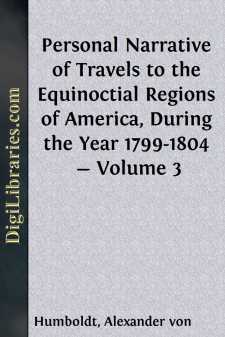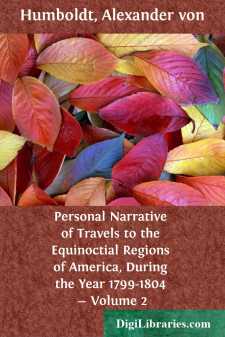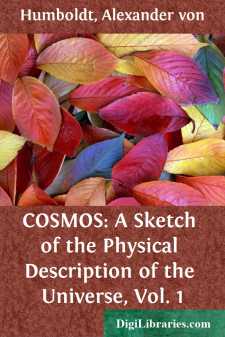Categories
- Antiques & Collectibles 13
- Architecture 36
- Art 48
- Bibles 22
- Biography & Autobiography 813
- Body, Mind & Spirit 142
- Business & Economics 28
- Children's Books 16
- Children's Fiction 13
- Computers 4
- Cooking 94
- Crafts & Hobbies 4
- Drama 346
- Education 46
- Family & Relationships 57
- Fiction 11829
- Games 19
- Gardening 17
- Health & Fitness 34
- History 1377
- House & Home 1
- Humor 147
- Juvenile Fiction 1873
- Juvenile Nonfiction 202
- Language Arts & Disciplines 88
- Law 16
- Literary Collections 686
- Literary Criticism 179
- Mathematics 13
- Medical 41
- Music 40
- Nature 179
- Non-Classifiable 1768
- Performing Arts 7
- Periodicals 1453
- Philosophy 64
- Photography 2
- Poetry 896
- Political Science 203
- Psychology 42
- Reference 154
- Religion 513
- Science 126
- Self-Help 84
- Social Science 81
- Sports & Recreation 34
- Study Aids 3
- Technology & Engineering 59
- Transportation 23
- Travel 463
- True Crime 29
Alexander von Humboldt
Alexander von Humboldt (1769–1859) was a German polymath, naturalist, and explorer, renowned for his scientific expeditions and writings on the natural world. His most famous work, "Kosmos," attempted to unify diverse scientific disciplines and presented the universe as a harmonious whole. Humboldt's travels in Latin America, documented in books like "Personal Narrative of Travels to the Equinoctial Regions of the New Continent," significantly advanced knowledge in geography, botany, and climatology. He is also considered a pioneer of modern environmentalism and greatly influenced later scientists such as Charles Darwin.
Author's Books:
Sort by:
SPANISH GUIANA. ANGOSTURA. PALM-INHABITING TRIBES. MISSIONS OF THE CAPUCHINS. THE LAGUNA PARIME. EL DORADO. LEGENDARY TALES OF THE EARLY VOYAGERS. I shall commence this chapter by a description of Spanish Guiana (Provincia de la Guyana), which is a part of the ancient Capitania general of Caracas. Since the end of the sixteenth century three towns have successively borne the name of St. Thomas of...
more...
LAKE OF TACARIGUA. HOT SPRINGS OF MARIARA. TOWN OF NUEVA VALENCIA DEL REY. DESCENT TOWARDS THE COASTS OF PORTO CABELLO. The valleys of Aragua form a narrow basin between granitic and calcareous mountains of unequal height. On the north, they are separated by the Sierra Mariara from the sea-coast; and towards the south, the chain of Guacimo and Yusma serves them as a rampart against the heated air of...
more...
VOLUME I [p 2 is blank] p 3 TRANSLATOR'S PREFACE. ———————————- I CAN not more appropriately introduce the Cosmos than by presenting a brief sketch of the life of its illustrious author.* While the name of Alexander von Humboldt is familiar to every one, few, perhaps, are aware of the peculiar circumstances of his scientific career and of the extent of his labors in almost...
more...




